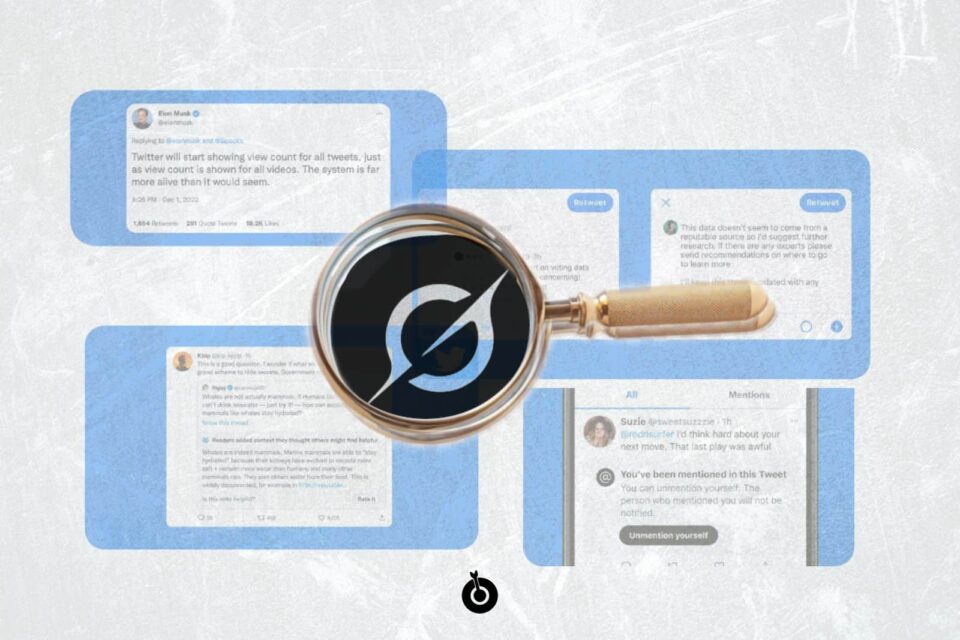Fact-checking has reduced what Mayowa Tijani describes as historical disinformation, which politicians spread. As a journalist at TheCable and fact-checker, he says politicians now know they will be fact-checked, so their attempts to distort information have reduced.
However, disinformation is the least of a fact-checker’s worries in an age where information creation and dissemination have become easier. Now, they must tackle misinformation in a hyper-networked media ecosystem where billions of pieces of information are shared daily.
This makes fact-checkers’ jobs all the more important, but what happens when artificial intelligence (AI) becomes a fact-checker?
Grok, X’s AI chatbot, is slowly assuming that role. Nigerians have been asking the chatbot questions and using it as a fact-checker in an age where misinformation is easier to create and disseminate.
Globally, AI tools like Grok are being used to fact-check claims, with varying degrees of accuracy.
According to TechCrunch, X users in markets like India have started treating Grok as a fact-checking tool, which is concerning, as the AI has been known to make up fake news.
In one instance, it falsely accused American basketball star Klay Thompson of brick vandalism when, in fact, it was the athlete’s home that was vandalised with bricks. However, most people ran with the story before the athlete could set the record straight.
In Nigeria, X users have also engaged Grok for fact-checking and amusement. However, experts believe there might be some risks to this.
Grok as a fact-checker

Although Grok is a faster way to verify information, its accuracy is questionable. Explaining how AI models like Grok respond to queries, Tijani points out how easily they can make mistakes.
Join 30,000 other smart people like you
Get our fun 5-minute roundup of happenings in African and global tech, directly in your inbox every weekday, hours before everyone else.
“Grok is trained to predict the next word based on a vast dataset. This means that while some responses may be correct, others could be outrightly wrong,” he says. “We’ve seen cases where Grok provides answers about events that have yet to happen, making predictions based on past occurrences. This can lead to misinformation.”
Even for events that have happened or are currently happening, Grok still makes mistakes. Lois Ugbede, Assistant Editor at fact-checking firm Dubawa, tells Techpoint Africa that Grok once told X users that a protest video was an accident scene when asked the location of the protest.
This is where AI regulation comes in. After Grok spread inaccurate information before the US elections, five Secretaries of State urged Elon Musk to update the AI model.
The government noted that Grok’s tendency to create inaccurate summaries had increased. But in Nigeria, the focus has been more on developing AI than regulating it. In 2024, 120 AI experts were enlisted to help create an AI adoption strategy.
Meanwhile, some work is still being done in terms of regulating AI. In August 2024, the Federal Ministry of Communication, Innovation and Digital Economy released the national AI strategy, which focused on AI development and enforcing ethical standards in AI use.
In March 2025, the National Human Rights Commission (NHRC) also announced plans to engage with technology companies to prevent potential harm from using AI.
The risks of AI-generated misinformation
Misinformation has real-world consequences, especially in a country like Nigeria, where false narratives can spread rapidly and influence public opinion. Tijani warns that if people take Grok’s responses as absolute truth, the risks could be significant.
“We’ve seen how misinformation can shape political discourse and even incite violence. AI tools like Grok could unintentionally amplify these risks if people don’t verify the information elsewhere.”
He advocates for a “human-in-the-loop” approach, where AI tools assist human fact-checkers rather than replace them entirely.
“AI should complement human verification processes, not serve as the final authority on truth.”
Ugbede also shares the same viewpoint. “I believe that human fact-checkers and AI will do exploits when they collaborate rather than compete.”
She opines that human fact-checkers should closely follow the AI revolution and determine how it can make their work easier.
Can AI replace human fact-checkers?
The possibility of AI eventually replacing human fact-checkers isn’t far-fetched. Tijani acknowledges that advancements in artificial general intelligence (AGI) could bring AI closer to human-level reasoning.
“AI is evolving rapidly. While it may not replace all fact-checkers, it could significantly reduce the need for manual verification in some areas. The key is ensuring these systems are trained responsibly.”
For Ugbede, AI cannot replace human fact-checkers “because fact-checking isn’t just about the tools but a critical and analytic mind that knows when to do more or less or when to change a fact-check format.”
Beyond Grok, misinformation in Nigeria is evolving. Tijani points out that while traditional political disinformation has decreased due to increased fact-checking efforts, there is a growing amount of AI-generated misinformation.
“We’re at the beginning of a new kind of disinformation war — one where AI-generated content might outnumber human-created content by 2030.”
As AI-generated news sites multiply, the challenge will be distinguishing fact from fiction. “How do we find the truth when most online information is machine-generated?” Tijani asks.
